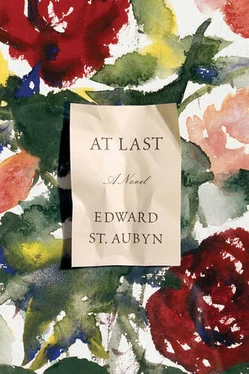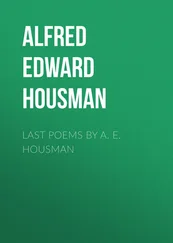How nauseating, thought Nicholas, a Jew being sentimental on behalf of a Negro: you lucky fellows, you’ve got plenty o’ nuthin’, whereas we’re weighed down with all this international capital and these wretched Broadway musical hits. When an idea is floundering, Nicholas said to himself, practising for later, songwriters always wheel out the celestial bodies. De things dat I prize, / Like de stars in de skies, / All are free . No surprises there — one couldn’t expect to get much rent from a hydrogen bomb several million light-years away. It was hard enough persuading a merchant banker to cough up a decent rent for one’s lovely Grade II listed Queen Anne dower house in Shrop-shire, without asking him to drive to the moon for the weekend. Talk about too far from London, and nothing to do when one got there, except bounce around while the oxygen runs out. There was such a thing as the way of the world. Sixty per cent of the Titanic ’s first-class passengers survived; twenty-five per cent of the second-class passengers, and no one from steerage. That was the way of the world. ‘Sure is grateful, boss,’ simpered Nicholas under his breath, ‘I got de deep blue sea.’
Oh, God, what was going on now? The ghastly ‘Spiritual Tool Box’ was going up to the lectern. He could hardly bear it. What was he doing here? In the end, he was just as sentimental as silly old Ira Gershwin. He had come for David Melrose. In many ways David had been an obscure failure, but his presence had possessed a rare and precious quality: pure contempt. He bestrode middle-class morality like a colossus. Other people laboured through the odd bigoted remark, but David had embodied an absolute disdain for the opinion of the world. One could only do one’s best to keep up the tradition.
For Erasmus the most interesting lines were undoubtedly, Never one to strive / To be good, to be bad—/ What the hell! I is glad / I’s alive! Nietzsche was there, of course, and Rousseau (inevitably), but also the Diamond Sutra. Porgy was unlikely to have read any of them. Nevertheless, it was legitimate to think in terms of the pervasive influence of a certain family of ideas, of nonstriving and of a natural state that preceded rule-based morality and in some sense made it redundant. Maybe he could see Mary after the funeral. She had always been so receptive. He sometimes thought about that.
Thank goodness there were people who were happy with nothing, thought Julia, so that people like her (and everyone else she had ever met), could have more . It was virtually impossible to think of a sentence that made a positive use of that dreadful word ‘enough’, let alone one that started raving about ‘nothing’. Still, the song was rather perfect for Patrick’s dotty mother, as well as being an upbeat disinheritance anthem. Hats off to Mary, as usual. Julia sighed with admiration. She assumed that Patrick had been feeling too ‘mad’ to do anything practical, and that Mother Mary had been asked to step in.
Really, thought Nancy, it was too ridiculous to turn to the Gershwin brothers when one’s own godfather was the divine Cole Porter. Why had Mummy wasted him on indifferent Eleanor when Nancy, who really appreciated his glamour and wit, might have had him all to herself? Not that Porgy and Bess didn’t have its glamorous side. She had gone to a big New York opening with Hansie and Dinkie Guttenburg and had the best time ever, going backstage to congratulate everybody. The real stars weren’t at all overawed by meeting a ferociously handsome German prince with a severe stutter, but you could tell that some of the little chorus girls didn’t know whether to curtsy, start a revolution, or poison his wife. She would definitely include that scene in her book, it was such a coming together of everything fun, unlike this drab funeral. Really, Eleanor was letting the family down and letting herself down as well.
Annette was stunned, as she walked down the aisle towards the lectern, by the appropriateness, the serendipity and the synchronicity of that wonderful, spiritual song. Only yesterday she had been sitting with Seamus at their favourite power point on the terrace at Saint-Nazaire (actually they had decided that it was the heart chakra of the entire property, which made perfect sense when you thought about it), celebrating Eleanor’s unique gifts with a glass of red wine, and Seamus had mentioned her incredibly strong connection with the African-American people. He had been privileged to be present at several of Eleanor’s past-life regressions and it turned out that she had been a runaway slave during the American Civil War, trying to make her way to the abolitionist North with a young baby in her arms. She’d had the most terrible time of it, apparently, only travelling at night, in the dead of winter, hiding in ditches and living in fear of her life. And now, the very next day, at Eleanor’s funeral, a man who was obviously the descendant of a slave was singing those marvellous lyrics. Perhaps — Annette almost came to a halt, overwhelmed by further horizons of magical coincidence — perhaps he was the very baby Eleanor had carried to freedom through the ditches and the night, grown into a splendid man with a deep and resonant voice. It was almost unbearably beautiful, but she had a task to perform and with a regretful tug she extracted herself from the amazing dimension to which her train of thought had transported her, and stood squarely at the lectern, unfolding the pages she had been carrying in the pocket of her dress. She fingered the amber necklace she had bought at the Mother Meera gift shop when she had gone for darshan with the avatar of Talheim. Feeling mysteriously empowered by the silent Indian woman whose gaze of unconditional love had X-rayed her soul and set her off on the healing path she was still following today, Annette addressed the group of mourners in a voice torn between an expression of pained tenderness and the need for an adequate volume.
‘I’m going to start by reading a poem that I know was close to Eleanor’s heart. I introduced her to it, actually, and I know how much it spoke to her. I am sure that many of you will be familiar with it. It’s “The Lake Isle of Innisfree” by William Butler Yeats.’ She started reading in a loud lilting whisper.
I will arise and go now, and go to Innisfree,
And a small cabin build there, of clay and wattles made;
Nine bean rows will I have there, a hive for the honey bee,
And live alone in the bee-loud glade.
Whereas it was sophisticated enough to order nine oysters, thought Nicholas, there was something utterly absurd about nine bean rows. Oysters naturally came in dozens and half-dozens — for all he knew, they grew on the seabed in dozens and half-dozens — and so there was something understandably elegant about ordering nine of them. Beans, on the other hand, came in vague fields and profuse heaps, making the prissy precision of nine ridiculous. At the very least it conjured up a dissonant vision of an urban allotment in which there was hardly likely to be room for a clay and wattle cabin and a bee-loud glade. No doubt the Spiritual Tool Box thought that ‘Innisfree’ was the climax of Yeats’s talent, and no doubt the Celtic Twilight, with its wilful innocence and its tawdry effects, was perfectly suited to Eleanor’s other-worldly worldview, but in reality the Irish Bard had only emerged from an entirely forgettable mauve mist when he became the mouthpiece for the aristocratic ideal. ‘Surely among a rich man’s flowering lawns, / Amid the rustle of his planted hills, / Life overflows without ambitious pains; / And rains down life until the basin spills.’ Those were the only lines of Yeats worth memorizing, which was just as well since they were the only ones he could remember. Those lines inaugurated a meditation on the ‘bitter and violent’ men who performed great deeds and built great houses, and of what happened to that greatness as it turned over time into mere privilege: ‘And maybe the great-grandson of that house, / For all its bronze and marble,’s but a mouse.’ A risky line if it weren’t for all the great mouse-infested houses one had known. That was why it was so essential, as Yeats was suggesting, to remain bitter and angry, in order to ward off the debilitating effects of inherited glory.
Читать дальше












